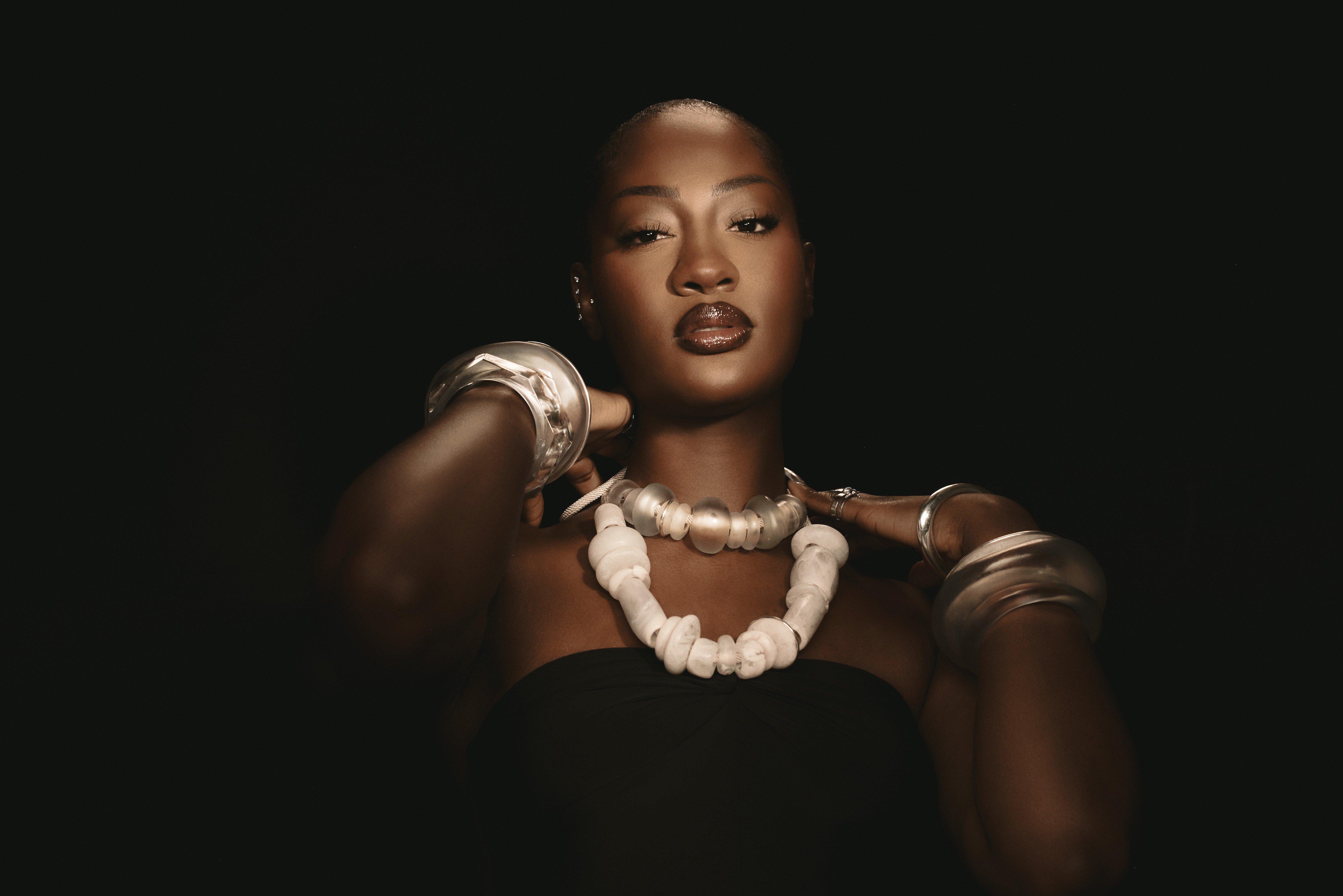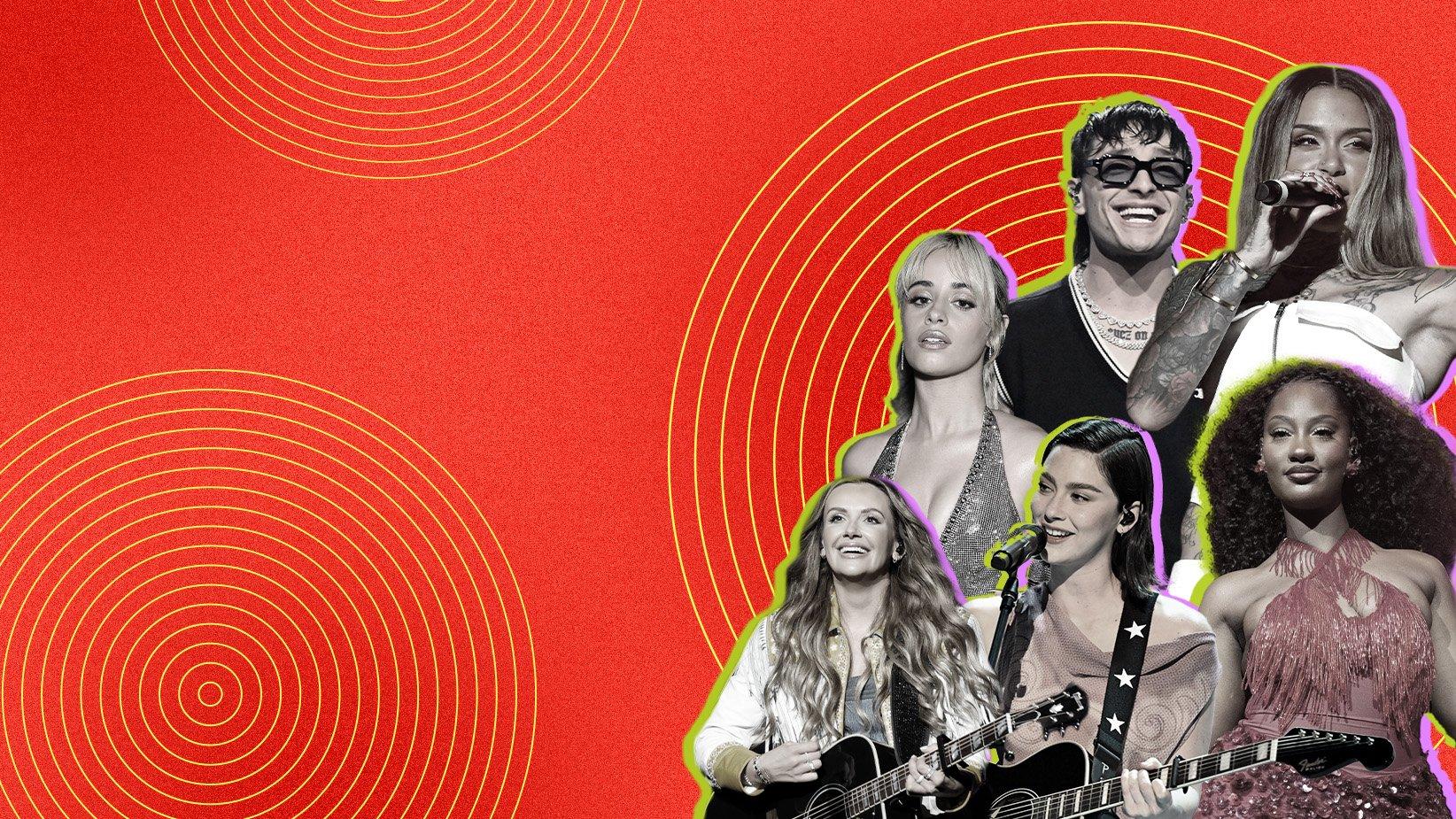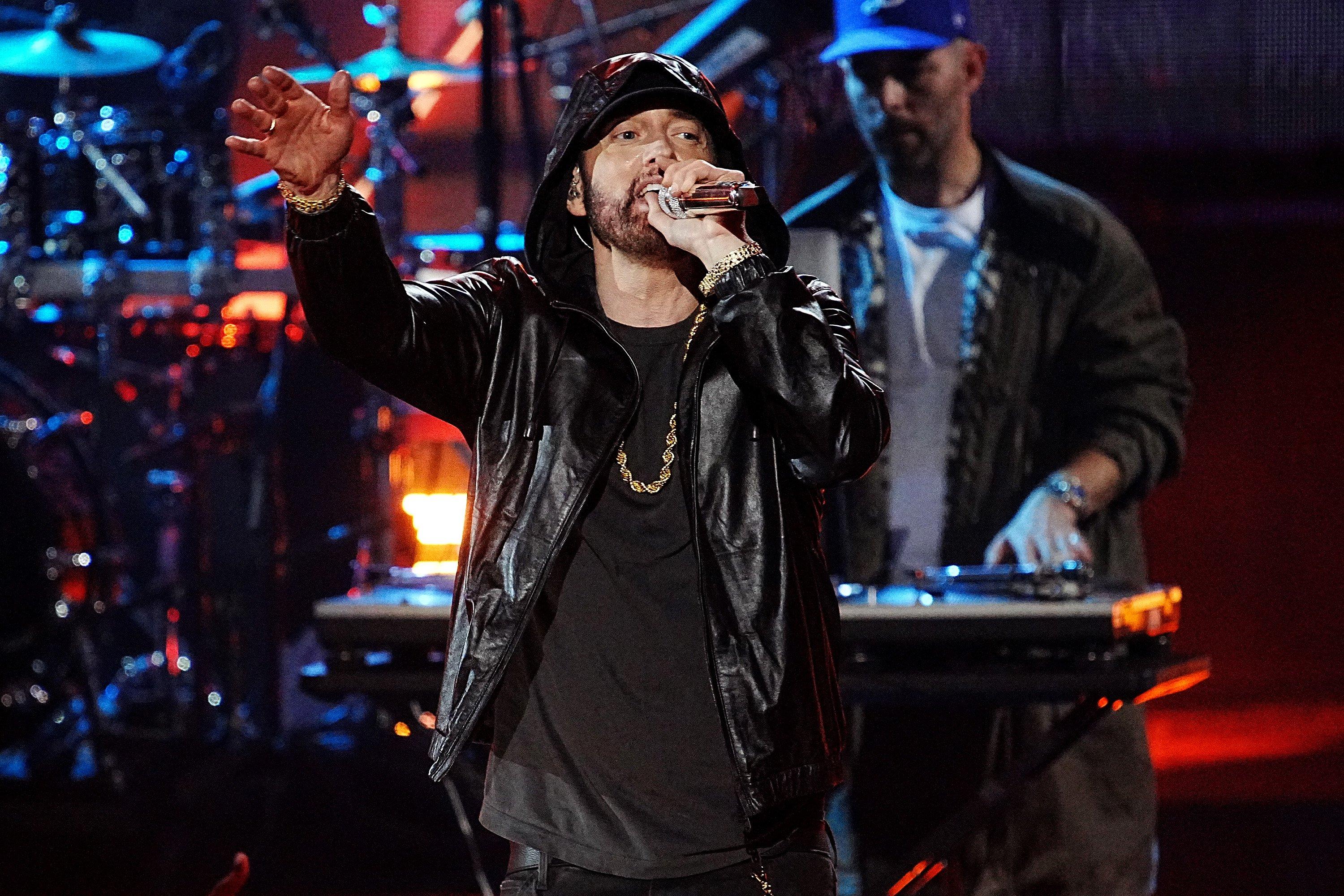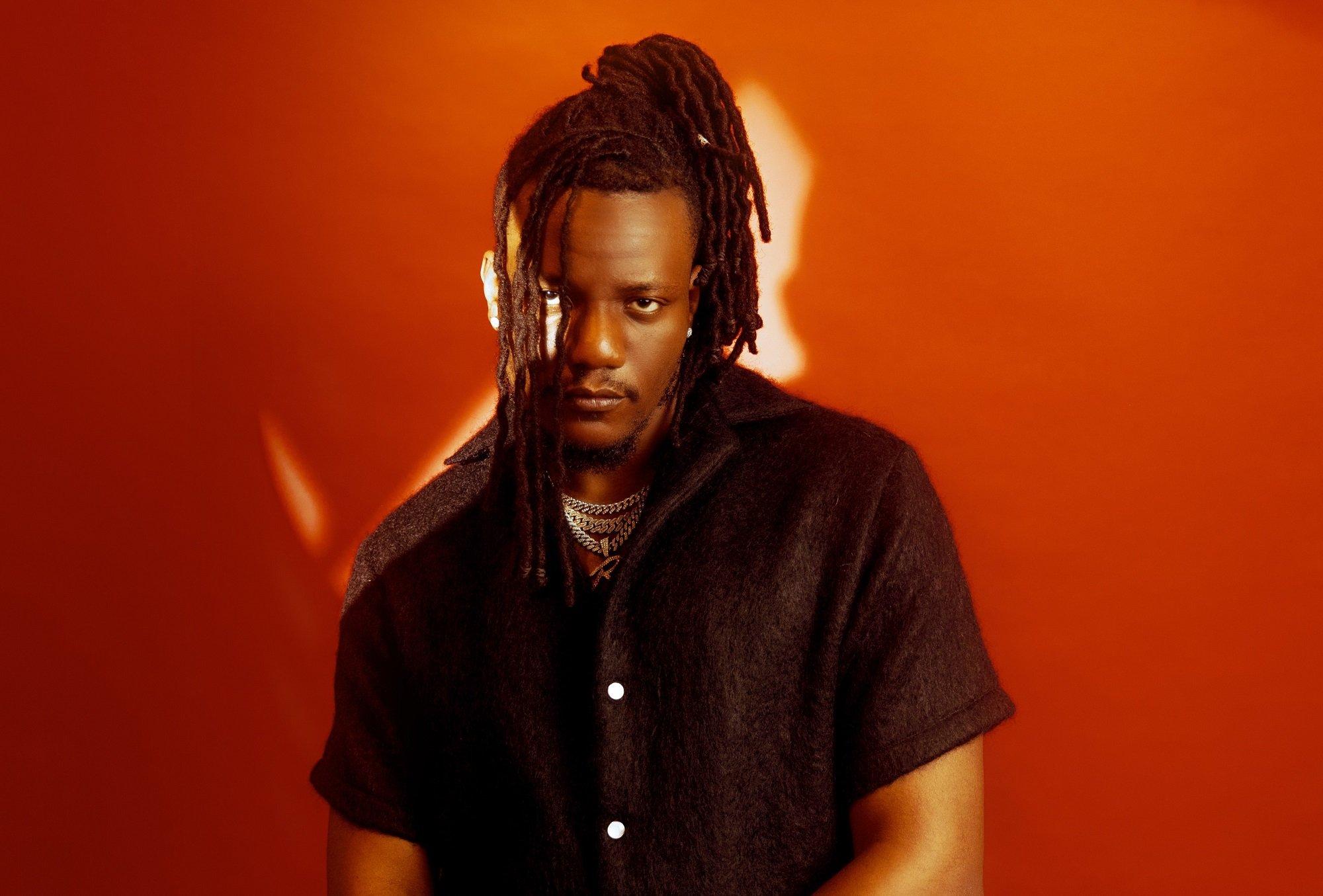June's rising temperatures bring a heat wave of releases, and also important events. Pride Month, Black Music Month, and Juneteenth all happen in the next four weeks, and whether it's to celebrate or to console our hearts, a variety of new albums will soundtrack this journey.
The first Friday of the month packs a powerful group of women: Charli XCX's will release Brat, Meghan Trainor's returns with Timeless, Carly Pearce brings forward hummingbird, Tems makes her official debut with Born in the Wild, and DJ Peggy Gou will also put out her first LP, I Hear You.
Women continue to dominate later in the month, and former Fifth Harmony members Normani and Camila Cabello will both drop new material with Dopamine and C,XOXO, respectively. Gracie Abrams will return with The Secret of Us, as well as Kate Nash and her 9 Sad Symphonies, Joni Mitchell and The Asylum Albums (1976-1980), and Kehlani with Crash.
Of course, there will also be plenty of fresh music from male artists, too, like Peso Pluma's Éxodo, Imagine Dragons' Loom, Kygo's self-titled LP, Lucky Daye's Algorithm, as well as a new live album from Paul McCartney & Wings, titled One Hand Clapping. Closing out the month, all ears will be tuning in to Omar Apollo's God Said No, Lupe Fiasco's Samurai, Neil Young & Crazy Horse's Early Daze, a still unnamed Steve Aoki album, and many others.
Below, get to know more about 15 of the most exciting albums dropping in June 2024.
Charli XCX — Brat
Release date: June 7
The reception to Charli XCX's upcoming album cover — a low-res image of the word "brat" centered in a lime green background — was controversial, but that was precisely her intention. "I wanted to go with an offensive, off-trend shade of green to trigger the idea of something being wrong," the British singer told Vogue Singapore. "I'd like for us to question our expectations of pop culture — why are some things considered good and acceptable, and some things deemed bad? ... I'm not doing things to be nice."
Following 2022's Crash, Brat is Charli's sixth studio album, and boasts 15 club-ready tracks. Over on X (formerly Twitter), the pop provocateur stated that she "was born to make dance music," and that this is the album she's "always wanted to make." A preview of Brat's sleek, smacking sounds can be heard on singles "Von Dutch" and "360," plus a few other tracks shared in advance. The album also includes "So I," a tribute to late producer and DJ SOPHIE.
In support of the album, Charli lined up a slew of performances and DJ nights (dubbed Partygirl) in June, including stops in London, New York, and São Paulo. Later on, she will join Troye Sivan on their 2024 co-headlining Sweat Tour, set to kick off in September and hitting arenas around North America.
Tems — Born in the Wild
Release date: June 7
Nigerian singer Tems earned the eyes and the ears of international media with her Afrobeats-infused R&B. First raising attention with her feature in Wizkid's 2020 single "Essence," she later built up a devoted fandom through two EPs: 2020's For Broken Ears and 2021's If Orange Was a Place. In 2022, she was credited as a featured artist in Future's "Wait For U," which led her to win a GRAMMY for Best Melodic Rap Performance.
On June 7, Tems will release her long-awaited debut album, Born in the Wild. The official announcement came with a teaser video for the title track, disclosed one day after her Coachella set in April. "It's all over the news, all over the news, I know this/ Under the sun, struggling to find my focus/ When I was young, younger then/ I was always running away," she sings, reflecting on her childhood in Lagos. "I grew up in the wilderness/ Didn't know much about openness."
The record's first single,"Love Me JeJe," came out on April 25, followed by the announcement of a world tour spanning Europe, North America, and Australia from June to November.
Carly Pearce — hummingbird
Release date: June 7
"When you hear this album — wherever you are on your journey, I hope it shows you that pain can be a lesson that shows you just how strong you are and what you truly deserve," Carly Pearce wrote on Instagram as she announced her fourth studio album, hummingbird, in March.
The release follows 2021's 29: Written in Stone, which documented the country star's journey through marriage and divorce at the age of 29. "The last few years have been a season of loss and growth, of healing and happiness," Pearce added. "A belief that if I did the inner work, I would rebuild myself stronger than I was before, and a knowing that I have done some living and will always be unapologetic about it."
Hummingbird holds 14 tracks that encapsulate the GRAMMY-winning singer's redemption and "true love for country music." Among them is her current single, "We Don't Fight Anymore" with Chris Stapleton, and the title track, and previously released tracks "country music made me do it", "heels over head," "my place," and "fault line."
Peggy Gou — I Hear You
Release date: June 7
With 2023's "(It Goes Like) Nanana," DJ and singer Peggy Gou bounced from underground savant to worldwide summer queen. The single went viral on TikTok, entered charts across the globe, and led Gou to become one of the most in-demand electronic music artists in recent years — culminating with the title of first female DJ to headline Ushuaïa Ibiza.
Now, the South Korean-born, Berlin-based phenom is gearing up to release her debut LP, I Hear You, out June 7 via XL Recordings. According to a press release, the album depicts Gou "boldly claiming her voice through the kaleidoscopic lens of '90s house music." Featuring 10 tracks, it represents the "culmination of years of work," and includes the aforementioned "(It Goes Like) Nanana," 2021's "I Go," "I Believe in Love Again" with Lenny Kravitz, and lead single "1+1=11."
"I Hear You is more than just my debut album," Gou stated in the press release. "It embodies countless hours of dedication in my journey to create something timeless, and is a testament to the power of listening, to ourselves and to each other."
Bon Jovi — Forever
Release date: June 7
Rock icons Bon Jovi have been active for so long that it feels accurate to name their 16th studio album "Forever." In fact, the New Jersey band is celebrating their 40th anniversary with the release, set to drop on June 7.
"This record is a return to joy," said frontman Jon Bon Jovi in a statement. "From the writing, through the recording process, this is turn up the volume, feel good Bon Jovi." Forever follows 2020's 2020, and marks the band's first release after Bon Jovi's vocal surgery in 2022. Ushering in this new chapter, they also shared a Disney+ four-part documentary named Thank You, Goodnight: The Bon Jovi Story, and lofty single "Legendary."
In February of this year, Jon Bon Jovi was honored as the 2024 MusiCares Person Of The Year. The award recognized his extensive philanthropic work in a benefit gala during GRAMMY week — and granted the band yet another reason to celebrate.
The Decemberists — As It Ever Was, So It Will Be Again
Release date: June 14
Following a six-year hiatus, The Decemberists are back with their ninth record, As It Ever Was, So It Will Be Again. The double-LP holds 13 tracks that are split into four thematic sides, and features guest appearances from The Shins' James Mercer and R.E.M.'s Mike Mills.
After sharing the opener and lead single, "Burial Ground," the folk rock band from Portland, Oregon, shared the 19-minute prog closer "Joan in the Garden," which was inspired by the story of Joan of Arc — and ultimately teased As It Ever Was, So It Will Be Again will have many musical layers.
"I wanted to make my own version of Joan," vocalist Colin Meloy said in a press release. "But the song that came was as much about the creative process as it was about the actual woman, about angelic visitation and creative visitation and the hallucinogenic quality of both."
Last month, The Decemberists announced a lengthy North American summer tour, starting on April 30 in Kingston, New York, and wrapping it up with a special hometown show on Aug. 3 in Troutdale, Oregon.
Normani — Dopamine
Release date: June 14
Since her highly addictive 2019 hit, "Motivation," Normani has kept fans on the tip of their toes for a solo debut LP. She even turned their questioning into a website: wheresthedamnalbum.com. At last, the wait is finally over: after five long years, Dopamine will come out on June 14.
The album is spearheaded by lead single "1:59," which features rapper Gunna and blooms with late '90s R&B inspiration. Normani also shared a sultry album teaser, "Dopamine (First Dose)," which features a snippet of her latest release from the album, the airy "Candy Paint."
"The album feels like liberation, like a season of freedom," said the former Fifth Harmony member in an interview for WhoWhatWear earlier this year. "Not just because the record is finally coming out, but because it's a celebration of everything I have been through to get to this moment … I know I needed time, experiences, and space coming out of [Fifth Harmony] in order to become the version of myself I needed to be."
Peso Pluma — Éxodo
Release date: June 20
Almost exactly a year after releasing his third studio album, Génesis, Mexican star Peso Pluma follows his GRAMMY-winning LP by doubling down. Éxodo, his fourth studio effort, is a double album comprising 24 tracks — 16 corridos tumbados, 8 urbano songs — and a stellar guest list featuring Cardi B, Rich the Kid and Quavo, Anitta, and more.
In an interview with Rolling Stone, Pluma stated that this album will confront more directly the negative press that surrounds him. "[On Génesis] people already saw the good side, the superhero side. But I think this year, they're going to know a darker side," he added.
He's previewed Éxodo through seven tracks so far, including "LA DURANGO" with Junior H and Eslabón Armado, "Rompe La Dompe" also with Junior H and Oscar Maydon, and "LA PEOPLE II" with Tito Double P and Joel de la P. Pluma is currently on a massive arena tour throughout the U.S., set to conclude on October 11 in Montville, Connecticut.
Gracie Abrams — The Secret of Us
Release date: June 21
Sixteen months after releasing her debut album, Good Riddance, GRAMMY-nominated singer Gracie Abrams is already back with her second LP, The Secret of Us. Set to drop on June 21, the project holds 13 tracks and is led by the lively pop and sharp lyrics of "Risk."
The single was co-written by Abrams and her childhood best friend, Audrey Hobert, and co-produced by Abrams and The National's Aaron Dessner (who helmed the production of Good Riddance). On Instagram, Abrams shared that she and her team "had real, true fun writing this album," but that "there were also the occasional tears." The raspy-voiced star also revealed The Secret's track list, which includes a collaboration with Taylor Swift in the track "us."
Abrams opened several dates of Swift's The Eras Tour in 2023. She'll celebrate her new album later this year by returning to the Eras Tour lineup, joining Swift again for the final North American shows in October, November and December.
Lake Street Dive — Good Together
Release date: June 21
"The ethos of Good Together can be described as 'joyful rebellion,' just as energetic and danceable as it is defiantly principled," reads a press release on Lake Street Dive's upcoming record. Produced by Mike Elizondo, the album's main goal is to "highlight our shared humanity" through the quintet's dynamic, genre-bending compositions.
"There's a lot to be angry about in the world right now, a lot of pain and rage and divisiveness, but it isn't sustainable to constantly live in that anger — you need something else to keep you going," drummer Mike Calabrese said in a statement. "Joy is a great way to sustain yourself, and we wanted to encourage everyone to stay aware of that. In a way this album is our way of saying, 'Take your joy very seriously.'" A glimpse of those feelings appear in the laid-back album singles "Better Not Tell You" and the title track.
Lake Dive Street have also announced the biggest world tour of the band's career, kicking off its North American leg on June 14 in Asbury Park, New Jersey, and wrapping on October 12 in Atlanta, Georgia. In January 2025, they head on to Europe and the U.K.
Kehlani — Crash
Release date: June 21
It's already summer in Kehlani's world — or at least this is what their single "After Hours" feels like. Marking the Californian singer's first release since 2022's Blue Water Road, "After Hours" samples Cordel "Scatta" Burrell's "Coolie Dance Riddim" and sets expectations high for their upcoming record, Crash.
While little else is known about the album, Kehlani has been teasing bits and pieces of it on social media. She also released a second track, a booming dedication to a loved one called "Next 2 U," which Kehlani declared is "my favorite one" from the album.
Though Kehlani has yet to announce a coinciding tour for Crash, she'll play three shows at LIV Nightclub Las Vegas, in the Fontainebleau hotel. The first took place on May 31 — just hours after "Next 2 U" arrived — and the other two are on July 21 and Aug. 2.
Camila Cabello — C,XOXO
Release date: June 28
Another Fifth Harmony alum will make a comeback this month: Camila Cabello is set to release her fourth album, C,XOXO, on June 28. The LP marks a new sonic and visual era for the Cuban-born, Miami-based artist, and its inaugural mark came in the form of platinum blonde locks.
"The voice that I found with my new album has this big baddie energy vibe," Cabello explained in a recent Billboard cover story. "Part of that spirit is taking risks, not giving a f— and doing whatever you want. I think the blonde was me staying true to that feeling." The first single off the project, "I LUV IT" with Playboi Carti, displays how this fearless persona takes shape through hyperpop synths and a sample from Gucci Mane's "Lemonade."
Cabello also realized that this LP was a love letter to the city of Miami. "So much of the inspiration for this album was driving, listening to music, rolling the windows down and hearing what people in the city are listening to," she added. Among its collaborators are names like City Girls ("DADE COUNTY DREAMING"), Lil Nas X ("HE KNOWS"), and Drake, who features on "HOT UPTOWN" and "UUUGLY."
Imagine Dragons — Loom
Release date: June 28
Upon announcing Imagine Dragons' upcoming album, Loom, vocalist Dan Reynolds shared on Instagram that "working on this record was a rollercoaster." As he explained, "some days the songs came from a place of sadness and heartache and others joy and jubilance."
A press release further elaborated that the quartet's sixth LP will "represent the pinnacle of their artistic journey of self-discovery," while also balancing their familiar sounds with fresh ones. Through nine tracks, including lead single "Eyes Closed," Loom intends to symbolize "new beginnings on the horizon, the excitement for a new day, moments yet to come." As Reynolds added in his Instagram post, "may the things that loom in the future and distance be a beautiful tapestry of joy and pain that you can hang on your wall to reflect on as life passes us by."
The festive vibes will extend throughout the year, as the Las Vegas outfit just announced a world tour, which kicks off on July 30 in Camden, New Jersey. So far, they will stop through multiple cities in the U.S. and Canada through Oct. 22, but international dates are expected for 2025.
Omar Apollo — God Said No
Release date: June 28
"I gave it my everything," Omar Apollo said in a press release. "And God said 'no.'" Fortunately, the singer wasn't talking about crafting his sophomore LP, God Said No, but rather what led him to do it.
The 14-track record is described as "a survey of the emotional wreckage that followed the end of a torrid love affair," and was partially recorded at the legendary Abbey Road Studios in London. To process his grief, Apollo spent three months in the British city, and soon began to shape his most "soul-bearing and immediate body of work" so far.
In addition to vulnerable singles "Spite" and "Dispose of Me," Apollo also collaborated with musician Mustafa on "Plane Trees," and confirmed a participation by actor Pedro Pascal in an unspecified track — likely to be his namesake, "Pedro."
Lupe Fiasco — Samurai
Release date: June 28
Chicago rapper Lupe Fiasco is gearing up to release his ninth studio album, Samurai. Entirely produced by longtime collaborator Soundtrakk (who also produced Fiasco's previous effort, 2022's Drill Music In Zion), the record is "smooth, yet cerebral, brimming with ideas," according to a press release. It is also one of Fiasco's most personal works to date: "The album weaves things from my life as an artist, touching on things other artists go through," he said in a statement.
Samurai's eight tracks accompany the narrative of a battle rapper's career, from first honing his skills until mastering his craft. "Before rap even, martial arts was my whole life, and it still plays a huge role in my life," Fiasco added. "The overall themes of the album speak to the constant fight and the battle one goes through being in the entertainment industry. Some of the things we need to defend."
As for the title, Fiasco shared that "the word 'samurai' means to serve," and that his relationship to the word "meant that you need to be at the service of other people, either in the overall community, or in this instance, the rap community at large that I've been a part of for years."
Twenty One Pilots' Road To 'Clancy': How The New Album Wraps Up A Decade-Long Lore





